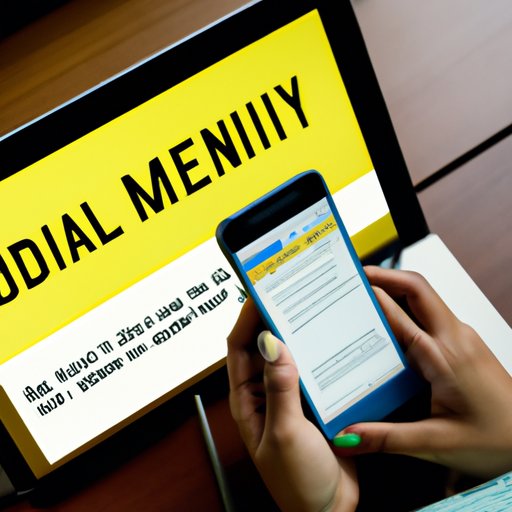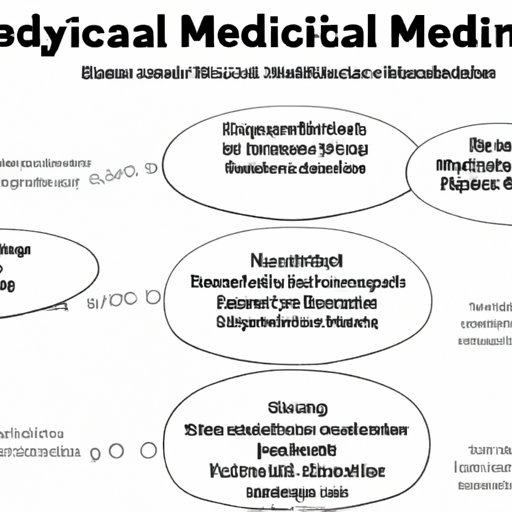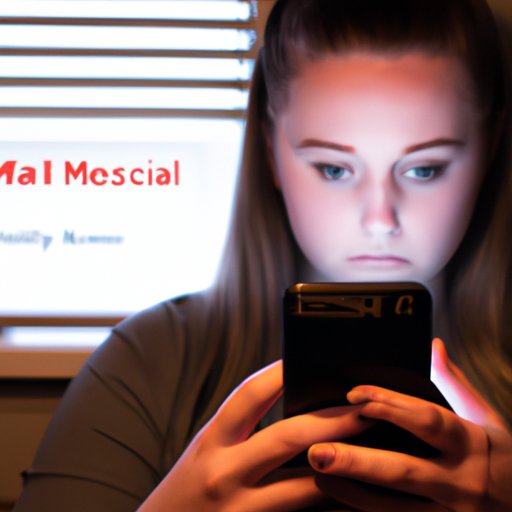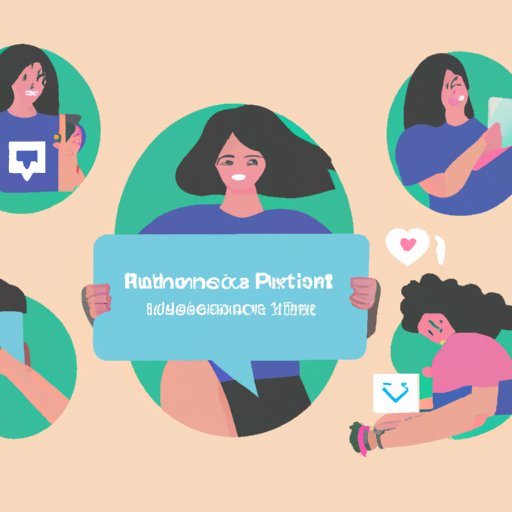Introduction
Social media has become an integral part of our everyday lives. From staying connected with friends and family to keeping up with current events, social media has changed the way we communicate and interact with one another. But what effect does this new form of communication have on our mental health? In this article, we will explore the impact of social media on mental health and discuss strategies for managing mental health concerns related to social media use.

Examining the Impact of Social Media on Mental Health
It is no surprise that social media can have a significant impact on our mental health. Studies have shown that heavy social media use can lead to feelings of depression, anxiety, low self-esteem, and body image issues. A 2019 study published in the journal Cyberpsychology, Behavior, and Social Networking found that frequent social media use was associated with higher levels of depression and anxiety among college students. The study also found that those who used social media more often were more likely to report feeling lonely and sad.
Exploring How People Use Social Media to Cope with Mental Illness
Despite the potential negative effects of social media, some people are using it as a tool to cope with mental illness. For example, many people turn to social media to seek support from others who may be going through similar experiences. According to a 2017 study published in the International Journal of Social Psychiatry, “the majority of participants reported using social networking sites (SNS) to connect with other people and share their thoughts, feelings and experiences to gain emotional support and understanding.” This suggests that social media can be used as a positive coping mechanism for those living with mental illness.

Analyzing the Relationship between Social Media and Mental Health Disorders
In addition to being a potential source of comfort, research has also suggested that social media use could be linked to certain mental health disorders. A 2017 study published in the journal Clinical Psychological Science found that the amount of time spent on social media was associated with an increased risk of developing certain mental health issues, such as depression and anxiety. The study also found that certain types of social media use, such as comparing oneself to others or engaging in online arguments, could be particularly detrimental to mental health.
Investigating the Positive and Negative Effects of Social Media on Mental Health
Although there are potential risks associated with social media use, there are also benefits. For example, social media can provide a platform for people to connect with others and express themselves. A 2016 study published in the journal Computers in Human Behavior found that social media use was associated with increased feelings of social connectedness, which can have a positive effect on mental health. Additionally, social media can be used to access helpful resources and information about mental health issues.

Understanding the Link Between Social Media Use and Mental Health in Young Adults
Young adults are particularly vulnerable to the effects of social media on mental health. A 2018 study published in the journal Clinical Psychological Science found that young adults who used social media heavily were three times more likely to experience mental health issues, such as depression and anxiety, compared to those who did not use social media. Additionally, young adults may face unique challenges when it comes to managing their mental health on social media, such as cyberbullying and online harassment.
Investigating the Role Social Media Plays in Mental Health Treatment
Social media can also be used as a tool for treating mental health issues. For example, researchers have found that using social media as part of cognitive behavioral therapy (CBT) can be beneficial for treating depression. Additionally, social media can be used to provide support and resources for those living with mental illness. One example is the hashtag #mentalhealthmatters, which is used to spread awareness and encourage conversations about mental health.
Conclusion
Social media can have both positive and negative effects on mental health. While it can be used as a source of support and connection, it can also lead to feelings of depression, anxiety, and low self-esteem. It is important to be aware of the potential risks associated with social media use and to take steps to manage mental health concerns. By understanding the link between social media and mental health, we can better equip ourselves to make informed decisions about our social media usage.
(Note: Is this article not meeting your expectations? Do you have knowledge or insights to share? Unlock new opportunities and expand your reach by joining our authors team. Click Registration to join us and share your expertise with our readers.)
